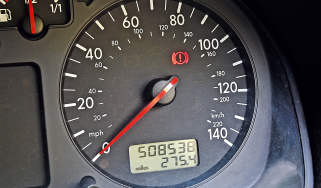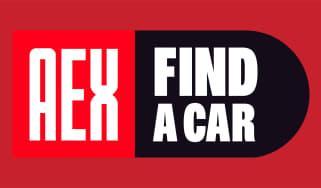Car selling scams to watch out for when selling your car
If you’re selling your car, you’ll need to be wary of these well-known tricks

Selling a car can be a stressful process at times, so the last thing you need is to fall foul of a car selling scam. Not only could you lose money to a scammer, but your car and personal details could be taken as well. Keep reading to find out more about the most common scams, and how you can safely steer clear of them when you sell your car.
Car payment scams
Scammers want to take money rather than give it out, so if an undesirable decides to purchase your car, they’re very unlikely to spend legitimate funds in order to obtain it. While selling a car for cash can be quick and easy, cash payments also lack any of the protection associated with a digital transaction. Paying for a car with cash is a common form of money laundering, or you could even fall victim to something as simple as forged notes if you’re not careful.
To prevent the pitfalls of cash, a secure, tracked payment such as a bank transfer is the safer way to go when selling a car. You may need to wait for the bank’s fraud protection measures to be carried out, but the upside is that you’ll be better protected should you need proof of the transaction taking place.
If the person viewing the car claims to be buying for export or representing an overseas buyer, approach this with caution. A common scam is where a buyer claims to be using a payment agent, and they will then provide fake paperwork stating that the payment has been carried out. Of course, the seller will never actually see any of this money.
Regardless of your chosen payment method, always check the buyer’s photographic identification, such as their driving licence, to ensure that they are indeed who they say they are, and that the car is being registered in that person’s name. Also ensure that 100 per cent of the funds are cleared and in your possession before handing over the keys (you may have to wait several days, especially if the buyer is paying by cheque).
Fake car faults
A potential buyer may try to convince you that there’s a major mechanical problem that you were unaware of in order to knock several pounds off the asking price. This is especially likely if you let them inspect or test drive the car without your supervision and, in some extreme cases, they may even attempt to sabotage the car in some way. No matter how convincing their story is, never let anyone drive or inspect your car unsupervised and don’t believe any so-called mechanical advice.
A bit of light haggling is to be expected when selling a used car, but if a buyer is trying to take a ridiculously large sum off the asking price due to the apparent condition of the car, reject the offer and walk away from the deal. If there is a legitimate fault that you were unaware of, ask a trusted mechanic to take a look at it for peace of mind.

Identity theft
If the person viewing the car wants to photograph any of the associated paperwork, this could be a sign that they’re planning to copy your details and use them to commit identity fraud. Remember that it’s not only the V5C log book that has your details on it, and even repair invoices are likely to hold useful information that can be exploited.
If somebody asks to take photos of the documentation, you are well within your rights to decline on the basis of data protection. If you catch the prospective buyer trying to sneakily take pictures without you seeing, cancel the deal and ask them to leave. Remember, though, that a buyer wanting to look at documentation to determine the car’s condition and ownership is fine, it’s copying that’s the problem.
If you wish to put photographs of the documentation online to prove the car’s service history etc. make sure that all of your personal details, such as your name and address, are covered or removed.
Another more simplistic form of identity theft that can occur when a car has been sold is the new owner accruing penalties and fines in the previous registered keeper’s name.
The easiest way to prevent this from happening is by signing over the V5C log book to the new keeper before they drive off. This can be done online or by post but make sure that you are the one to do it, don’t just trust the buyer to complete it at a later date.
Intimidation and theft
Some car buying scammers are far more direct than others. If an unsavoury potential buyer has arrived to look at your car, they may be intending to intimidate you into slashing the price or simply handing over the keys so they can steal it.
Unfortunately, it’s difficult to completely protect yourself against theft, but taking some steps will help to keep you safe at the very least. Firstly, make all viewing arrangements over the phone, so you can get a slightly better picture of the person you’re talking to. Try to avoid making these arrangements via text or messaging apps.
Whether the viewing is taking place at your home or in a public place, ensure that it’s during the daytime and try to bring someone along to accompany you. If you are meeting in public, the upside of this is that a potential thief won’t immediately know where the car is stored or where you live.
In some instances, car viewings have been used by thieves as an opportunity to ‘case out’ a property to then burgle it at a later date. If you do decide to meet in public, insist on a familiar and busy location. Also make sure that the car is in clear view of any CCTV cameras.
Your wellbeing is far more important than the car, so if you do find yourself being threatened into handing over the keys, surrender them and then call the police on 999 as soon as possible. This is never a pleasant situation, but it’s not worth putting your own safety at risk.
Did you know you can sell your car with Auto Express? Get the highest bid from our network of over 5,500 dealers and we'll do the rest. Click here to try Auto Express Sell My Car now...
Find a car with the experts









